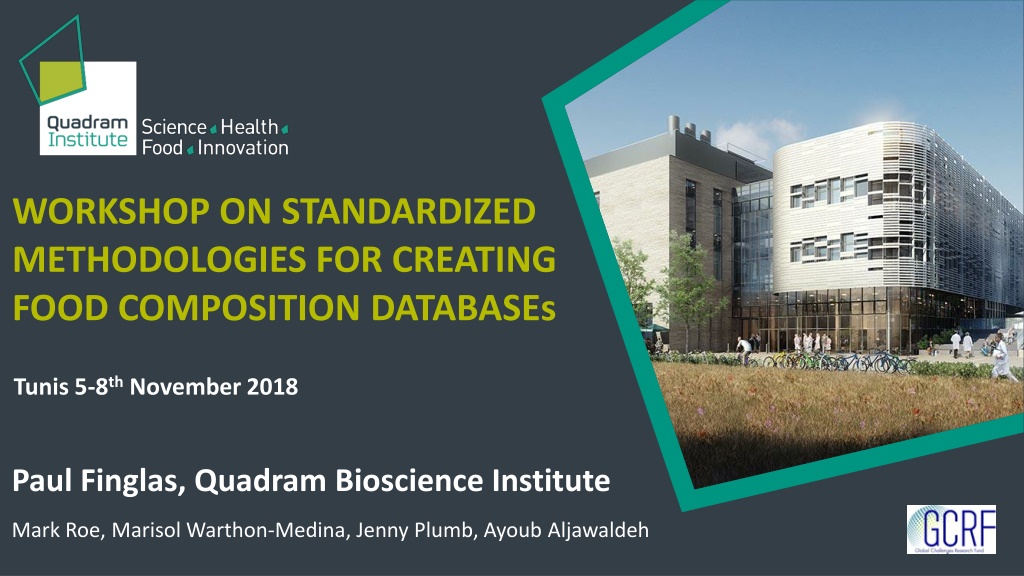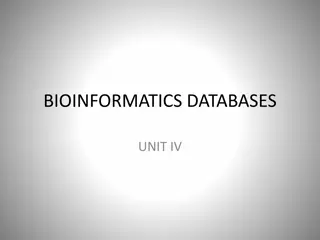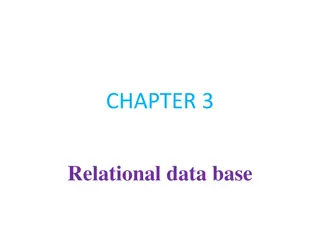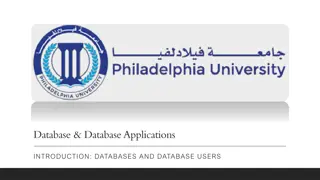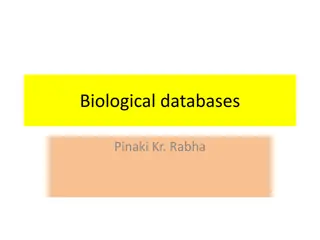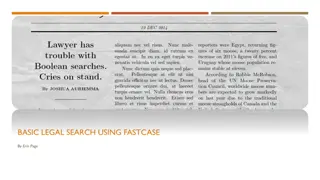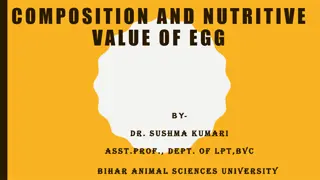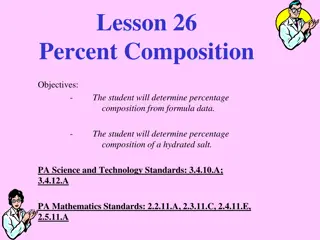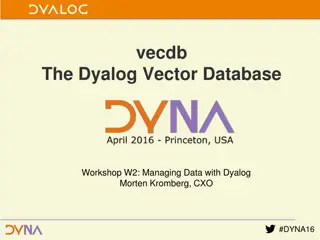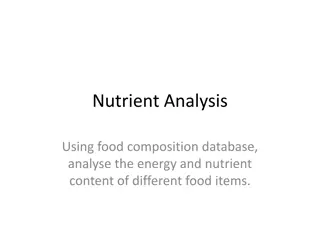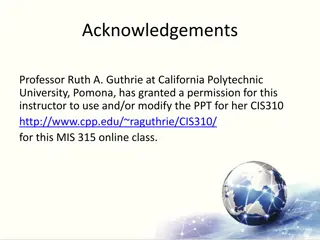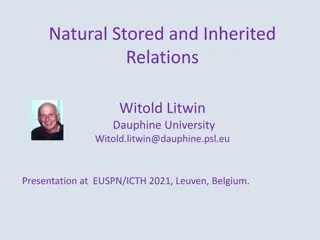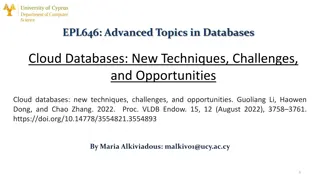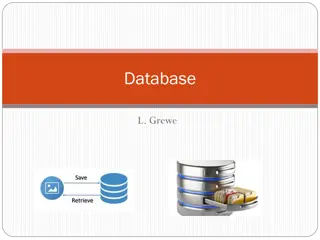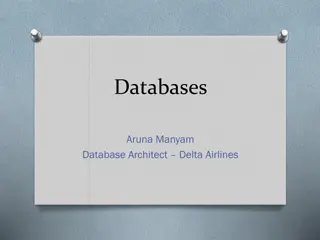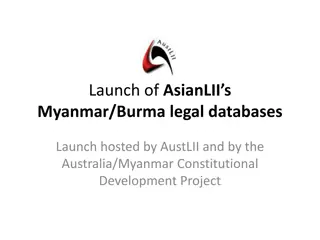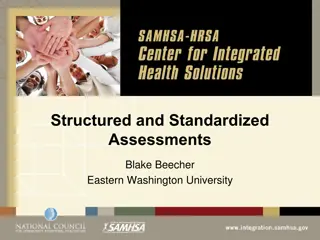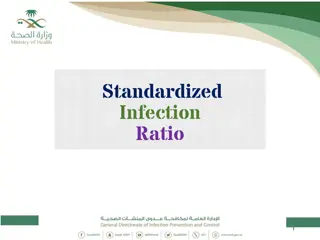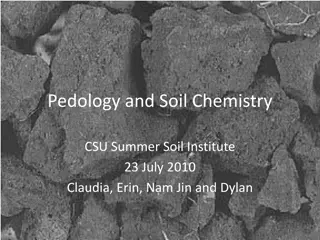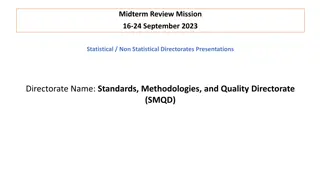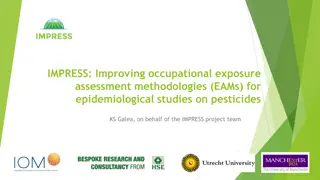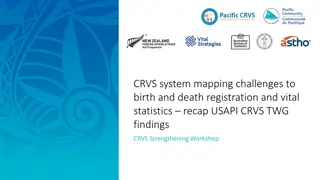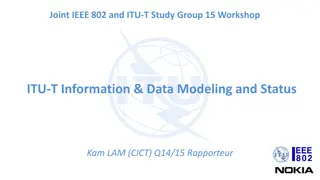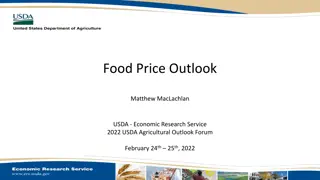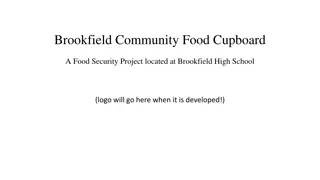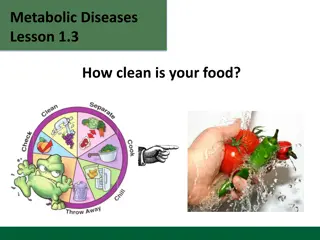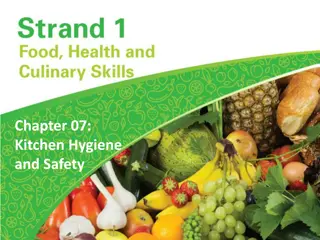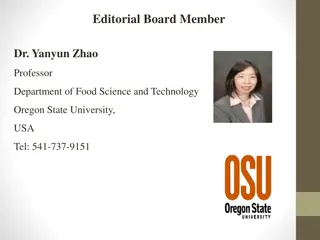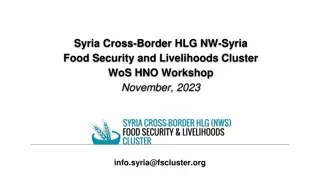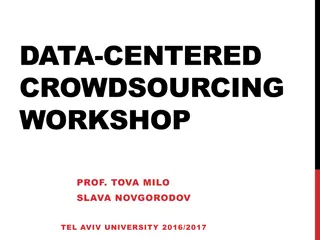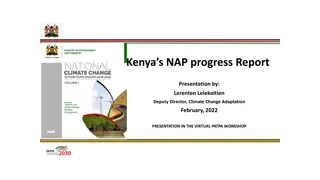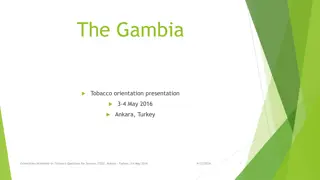Workshop on Standardized Methodologies for Food Composition Databases
The workshop held in Tunisia aimed to improve national food composition datasets, focusing on countries in the Eastern Mediterranean Region and Africa. Key objectives included identifying existing data status, providing training on data compilation, and generating harmonized datasets for EuroFIR. The outcomes sought to enhance datasets' validity, establish robust national databases, and discuss future steps for dataset improvement and dissemination.
Uploaded on Sep 26, 2024 | 0 Views
Download Presentation

Please find below an Image/Link to download the presentation.
The content on the website is provided AS IS for your information and personal use only. It may not be sold, licensed, or shared on other websites without obtaining consent from the author. Download presentation by click this link. If you encounter any issues during the download, it is possible that the publisher has removed the file from their server.
E N D
Presentation Transcript
WORKSHOP ON STANDARDIZED METHODOLOGIES FOR CREATING FOOD COMPOSITION DATABASEs Tunis 5-8th November 2018 Paul Finglas, Quadram Bioscience Institute Mark Roe, Marisol Warthon-Medina, Jenny Plumb, Ayoub Aljawaldeh
Tunisia workshop AIMS: To identify status of national existing food composition data focusing on: Tunisia Morocco and Mauritania in the Eastern Mediterranean Region (EMR) Burkina Faso, Togo and Cote d'Ivoire in Africa. To provide further training and guidance in the compilation of food composition data. To generate harmonized datasets for dissemination and uploading to European Food Information Resource (EuroFIR) online food data platform.
Training, development and testing may include: Food description e.g LanguaL and Food EX2 and to apply procedures to existing foods with checking. Review of existing recipe calculation procedures used for composite dishes including retention and yield factors Preparation of harmonized datasets in EuroFIR excel template Importing of harmonized data sets to FoodEXplorer New food data generation: standardized procedures for sampling, nutrient analysis and quality control.
Intended Outcomes: Review and improvement of the national datasets, addition/review of data documentation. Establishment of harmonized and robust national food composition datasets for: Tunisia (validity), Morocco (improvement), Mauritania (development), Burkina Faso, Togo and Cote d'Ivoire Compilation, publication and dissemination of Food Composition Databases As part of the World Health Organization (WHO) EMR dataset on the EuroFIR Food Data Platform and AFROFOODS website To discuss and agree next steps for each country Ideas for improving the datasets and filling gaps.
Agenda overview: (Potential to change based on issues raised on day one) Monday: Update on status on FCD from all countries Challenges and problems in compilation Tuesday: Sampling, recipe calculations, yield and retention factors Practical training on recipe calculations Wednesday: Food description, data quality, value documentation, Food Explorer Practical training on Food Ex2 food description Thursday: Planning next steps for all countries
Belgrade workshop on standardized methodologies for creating food composition data base. Belgrade, Serbia 18th 26th October 2018. Aims: To provide training and guidance in the compilation of existing food composition data from Pakistan, Iran, Iraq and Kuwait in order to generate harmonized datasets for uploading to European Food Information Resource (EuroFIR) online food data platform. Outcome: The establishment of harmonized national food composition datasets for Pakistan, Iran, Iraq and Kuwait being made available online as part of the World Health Organization (WHO) Eastern Mediterranean Region (EMR) dataset on the European Food Information Resource (EuroFIR) Food Data Platform.
Belgrade FAO Symposium 15th 17th October 2018 sustainable food systems for healthy diets in countries of Central and South Eastern Europe (CSEE). Belgrade workshop 18th 26th October 2018 Standardized methodologies for creating food composition data base.
Number of foods per country Comparing Rabat vs. Belgrade Iran Kuwait Pakistan Iraq Total FCD 403 foods. Of these 92 were analysed. 30 composite dishes. 350 foods. 140 raw foods. Iran Kuwait Pakistan Iraq N of Foods & nutrients for exporting 91 (simple & raw foods). 36 component (vitamins & minerals). 19 foods were coded with FoodEX2. 107 composite dishes. 96 components (vitamins & minerals, aminoacids). 198 (simple/ raw foods). 19 components (vitamins & minerals). 62 foods raw foods. 14 components.
Belgrade workshop What was done? What problems were identified? What solutions were implemented? Related to technical types of using food explorer. Clarified with CAPNUTRA. FCDs into EuroFIR format from Pakistan, Iran, Iraq and Kuwait. Struggling to find foods. Matching of certain components or analytical/calculating methods. Use of thesaurus reference types. Food matching with LanguaL code classification, particularly with composite dishes. Creation of a recipe and recipe calculation practice. Limitations of composite dishes. Different process of creating the standardized sample. Data quality. Nutrient values. Recalculation.
Evaluation per country: Country Comments / problems that were identified Component code for measuring energy. Published values do not match calculated values. Units values for Ca, P, Fe and Zn are given as g but should be mg. Inconsistency of values for VIT A and beta-carotene. Original raw data, all are analytical. Need information on retention and yield factor. Do not have simple foods. Pakistan Iraq Iran Kuwait
Questionnaire Feedback & suggested future workshop topics: Country EMRO region with different types of foods How to index EMRO foods based on FoodEx2 system? Coding foods: was it coded correctly or not? Yield and retention factors session Iran Kuwait Concentrate on composite dishes and standardized recipes Evaluate composite dishes data
Learnt outcomes & planned work Country Iran Conduct total diet study and index food items based on FoodEx system. Standardize and improve national FCD Kuwait Update FCD to harmonized international standards.
Belgrade Key outputs: Next steps: EUROFIR activity. FoodEX2/Langual coding. Harmonize data to input into FoodEX. Regional datasets.
